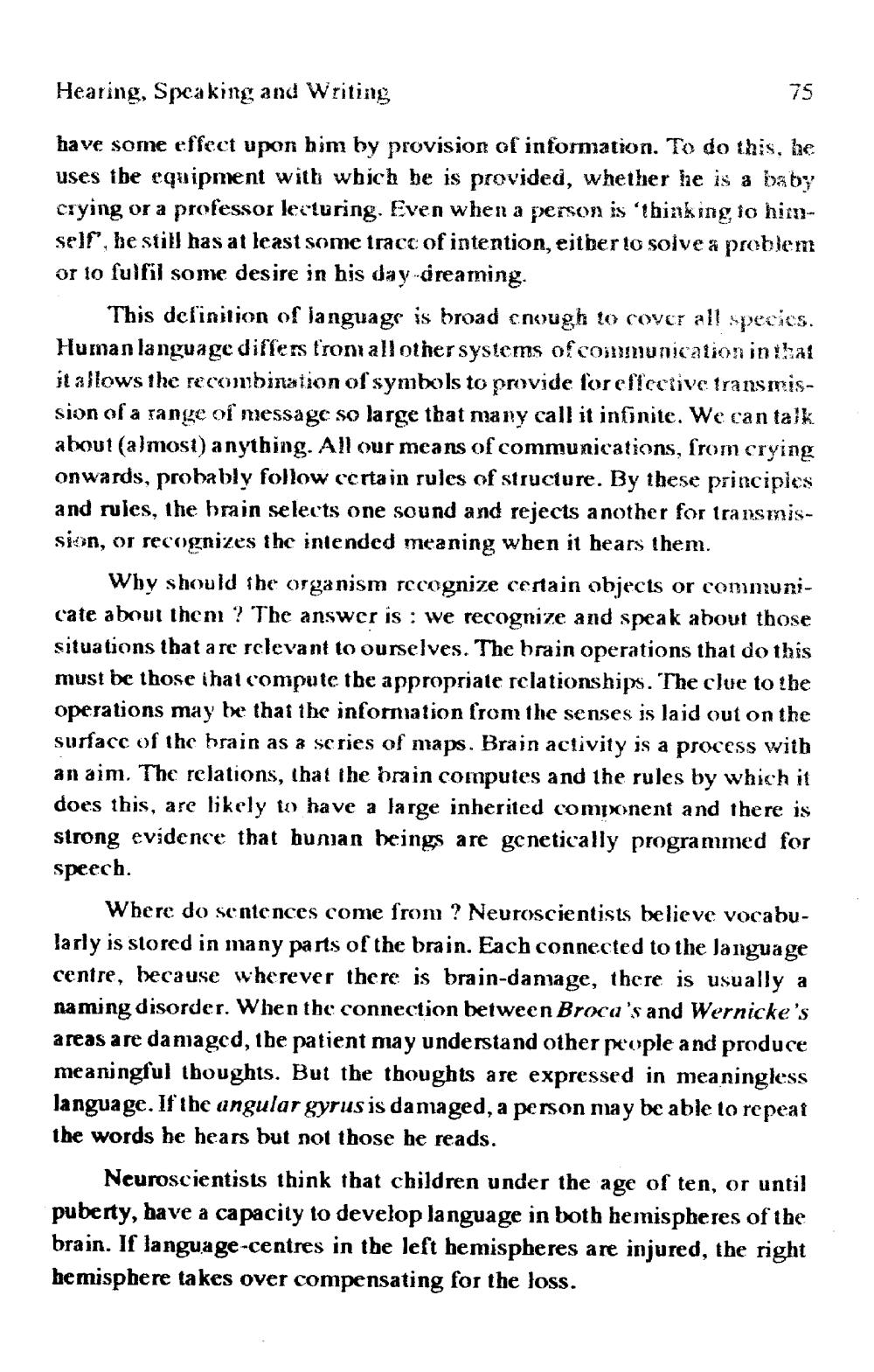________________
Hearing, Speaking and Writing
75
have some effect upon him by provision of information. To do this, he uses tbe equipment with wbich be is provided, whether he is a baby crying or a professor lecturing. Even when a person is 'thinking to himself, he still has at least some trace of intention, either to solve a problem or to fulfil some desire in his day-dreaming.
This definition of language is broad cnough to cover all species. Human language differs from allother systems of communication in thai it allows the recombination of symbols to provide for effective transmission of a range of message so large that many call it infinite. We can talk about(almost) anything. All our means of communications, from crying onwards, probably follow certain rules of structure. By these principles and rules, the brain selects one sound and rejects another for transmission, or recognizes the intended meaning when it hears them.
Why should she organism recognize certain objects or communicate about them ? The answer is : we recognize and speak about those situations that are relevant to ourselves. The brain operations that do this must be those ihal compute the appropriate relationships. The clue to the operations may be that the information from the senses is laid out on the surface of the brain as a series of maps. Brain activity is a process witb an aim. The relations, that the brain computes and the rules by which it does this, are likely to have a large inherited comwonent and there is strong evidence that human beings are genetically programmed for speech.
Where do sentences come from ? Neuroscientists believe vocabularly is stored in many parts of the brain. Each connected to the language centre, because wherever there is brain-damage, there is usually a naming disorder. When the connection between Broca's and Wernicke's areas are damaged, the patient may understand other people and produce meaningful thoughts. But the thoughts are expressed in meaningless language. If the angular gyrus is damaged, a person may be able to repeat the words he hears but not those he reads.
Neuroscientists think that children under the age of ten, or until puberty, have a capacity to develop language in both hemispheres of the brain. If language-centres in the left hemispheres are injured, the right hemisphere takes over compensating for the loss.




